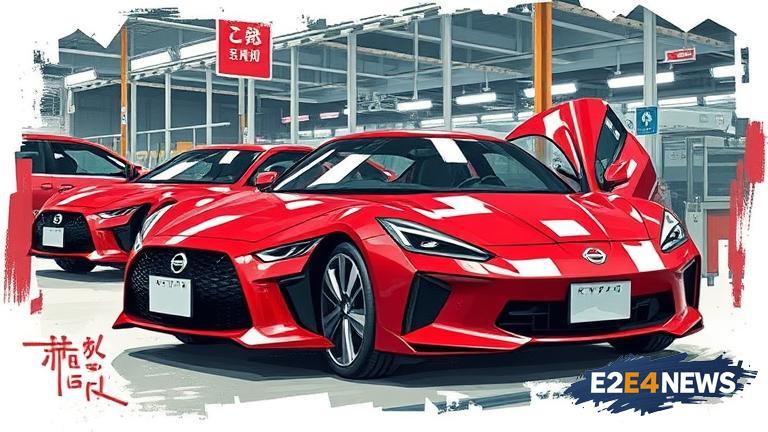Nissan, one of Japan’s largest automakers, has announced that it will be halting production at one of its Japanese plants due to declining sales and profitability issues. This move is a significant blow to the company, which has been struggling to regain its footing in the competitive automotive market. The production halt will affect the company’s plant in Tochigi Prefecture, which produces several models, including the Nissan GT-R and the Infiniti Q50. The decision to halt production is a result of Nissan’s efforts to reduce costs and streamline its operations. The company has been facing significant challenges in recent years, including a decline in sales and a series of high-profile scandals. Despite efforts to revamp its product lineup and improve its brand image, Nissan has struggled to regain its former glory. The production halt is expected to have a significant impact on the local economy, with many workers and suppliers affected by the decision. Nissan has stated that it will be providing support to affected workers, including training and education programs. However, the long-term implications of the production halt are still unclear. The company’s decision to halt production in Japan is also seen as a sign of the country’s declining automotive industry. Japan’s automotive sector has been facing significant challenges in recent years, including a decline in domestic sales and increased competition from foreign manufacturers. Despite efforts to promote the industry, including government incentives and investments in new technologies, Japan’s automotive sector continues to struggle. Nissan’s production halt is just the latest in a series of setbacks for the industry, which has been a mainstay of Japan’s economy for decades. The company’s decision is also seen as a reflection of the global automotive market, which is undergoing significant changes. The rise of electric and autonomous vehicles, as well as shifting consumer preferences, has created a challenging environment for traditional automakers like Nissan. As the company navigates this new landscape, it will be forced to make difficult decisions, including the potential closure of underperforming plants. The future of Nissan’s Japanese operations remains uncertain, with many questions still unanswered. Will the company be able to recover from its current struggles, or will it be forced to undergo significant restructuring? Only time will tell, but for now, the production halt is a significant blow to the company and the local economy.
